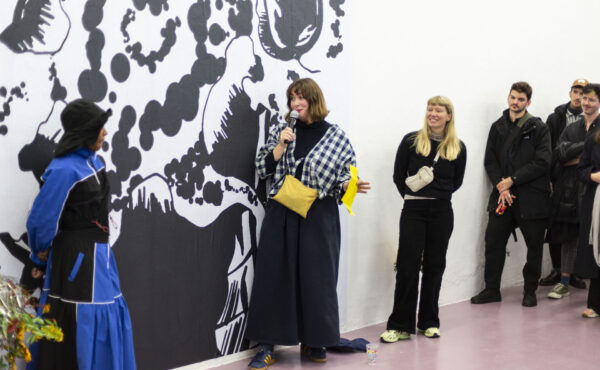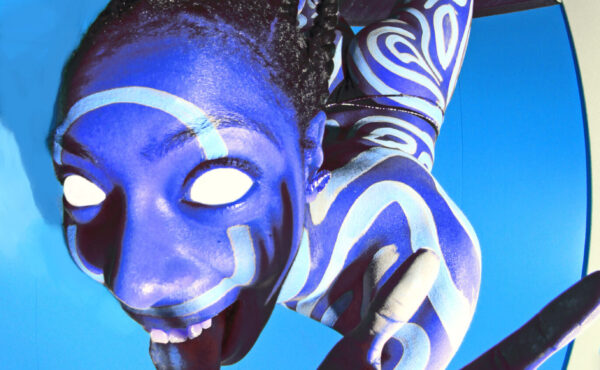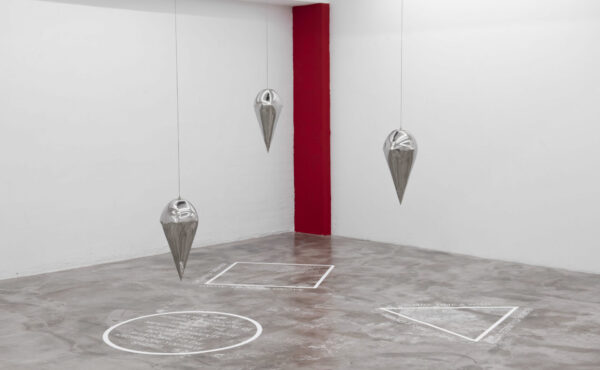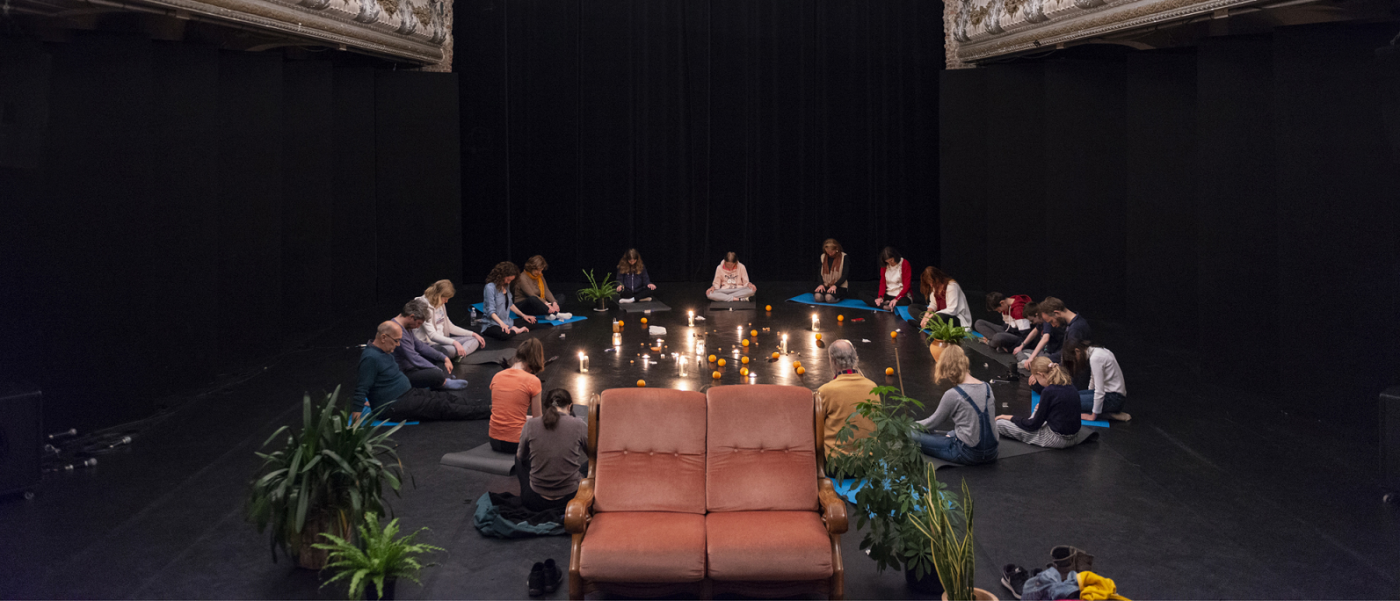
Cadine Navarro, Contour Biennale 9, 2019, image © Lavinia Wouters
Public Assembly on a Full Moon – the second phase of Contour 9
This year’s Contour Biennale in Mechelen is different from all previous eight editions. It is organized in three weekends taking the shape of public gatherings instead of One Big Show (like in Venice).
“This is not an exhibition”, is how Nataša Petrešin-Bachelez framed her curatorial effort for the 9th Contour Biennale in Mechelen during a closing discussion. In fact, the second phase of Coltan as Cotton didn’t feel like one. Reflecting Petrešin-Bachelez’s experimentation with fleeting temporalities in exhibition making, Coltan as Cotton is aligned to the 2019 moon cycle, with three weekends of public visibility. Throughout this second weekend, signalling the full moon phase, discursive and participatory formats took over from an object-based exhibition model. Furthermore, the majority of the projects engendered a sense of process rather than finished and polished outcomes.
In fact, several works are still in progress, as artists experiment with slower working methods and new modes of collectivity. Some artists, for instance, showed a refined form of their participation in the first weekend back in January. Marjolijn Dijkman, as a member of the initiative On-Trade-Off, organized a roundtable on the financial networks of lithium circulation in a so-called LUNÄ talk. Cadine Navarro’s social sculpture Black Gold, a compost experiment in the backyard of the Mechelen Academy installed in January, was supplemented with a breathing session inspired by earthly rituals. Successfully carrying on the intimate atmosphere of the first phase of Coltan as Cotton, the constellation of artistic projects only further emphasized that no form of oppression — whether primarily used against the environment, gender or race — exists in isolation. For example, Sara Sejin Chang (van der Heide) engaged with the (xenophobic) policies deployed by the Dutch government under Prime Minister Mark Rutte. In Dutch Cabinet Chang drew a Dutch wooden cabinet for each of the 558 days of Rutte’s first mandate. The series of drawings is a wordplay on the “cabinet” as a piece of furniture and as the executive branch of a government. Shown in a long corridor of the academy, the display strategy requires that one strolls the length in order to get a full view, adding to the absurdist attitude of Chang’s drawing routine.
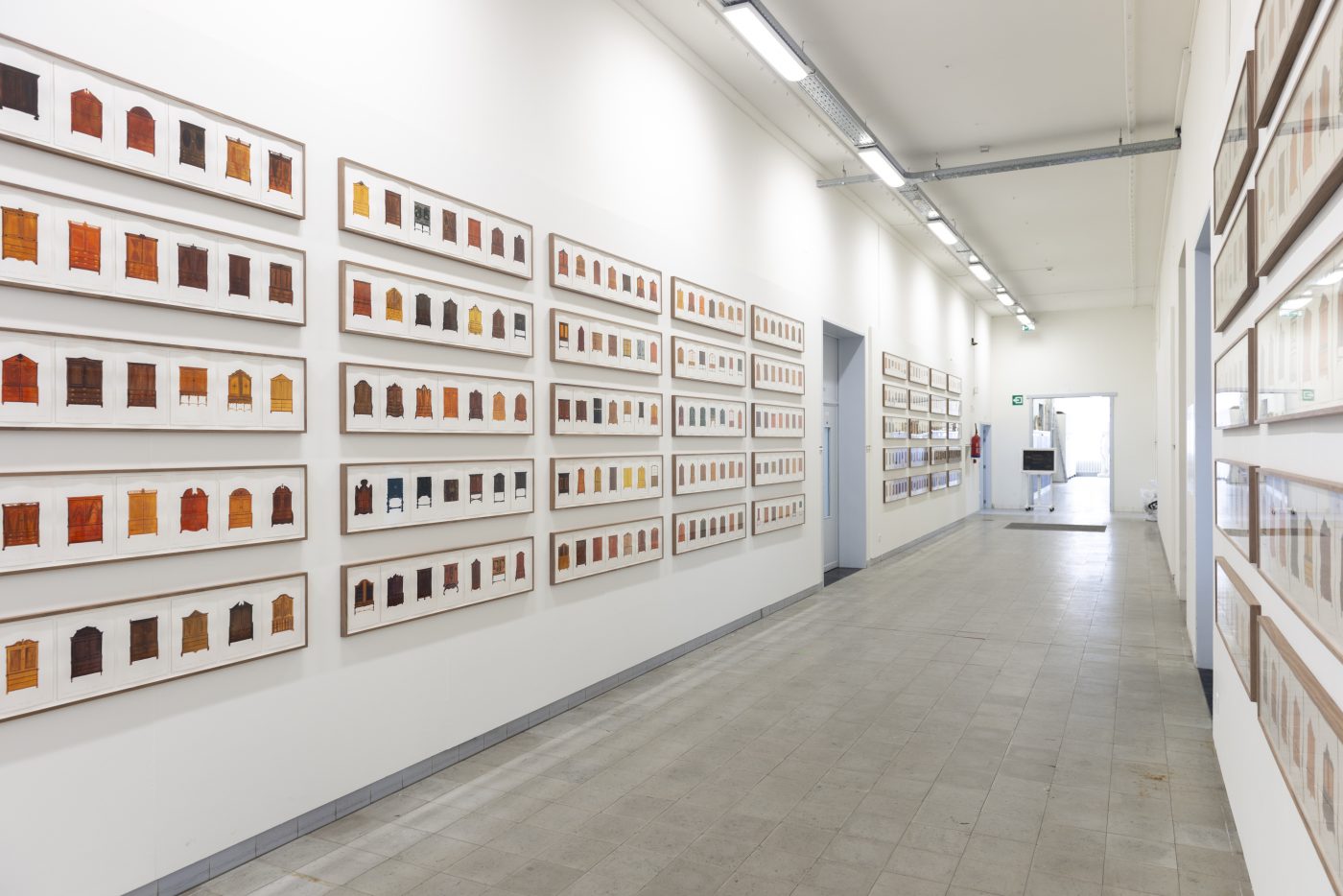
Sara Sejin Chang (Sara van der Heide), Hollands Kabinet, Contour Biennale 9, 2019, image © Lavinia Wouters
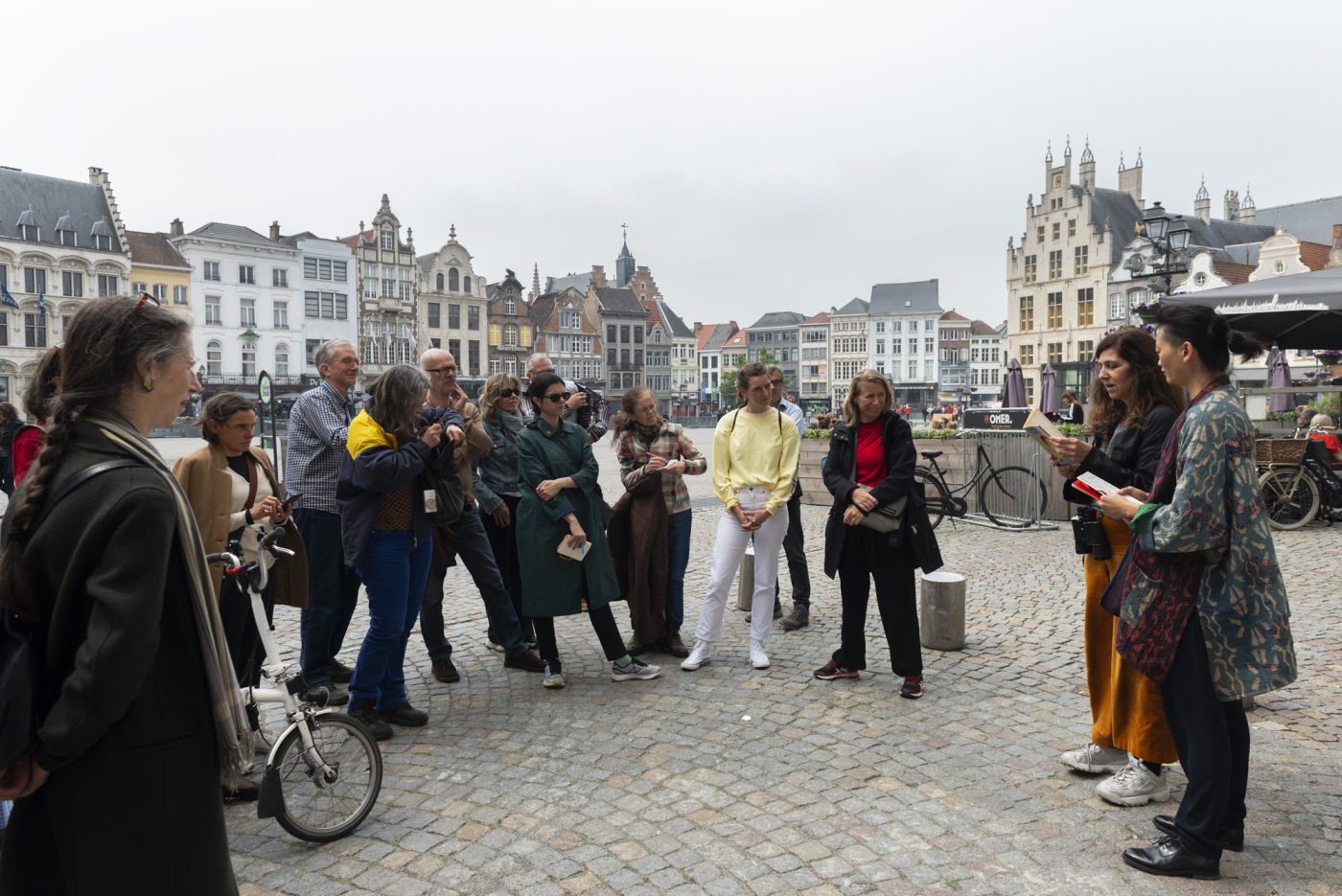
Saddie Choua, Take Care of Yourself and Walk, Contour Biennale 9, 2019, image © Lavinia Wouters
Walking was a vital component of this second phase. The majority of the projects were scattered around the city, requiring one to relentlessly track back-and-forth across the medieval setting of Mechelen. Case in point, Saddie Choua’s Take Care of Yourself and Walk took the visitor to unspectacular places. Punctuated by stops at sites of aggression against women, from the Flemish party offices (N-VA and Vlaams Belang) to the home of a single mother, her presentation deftly oscillated between personal traumatic experiences and broader questions of gendered violence. It also suggested a clever subversion of the flâneur trope: a collective of women (flâneuses?) stroll in order to claim visibility for violence against women. In a similar vein, Robin Vanbesien’s poetry walk staged public readings of poems written by young people in the frame of a former youth centre. The verses, read by local inhabitants, resonated powerfully in the urban fabric, bringing to the surface questions of loneliness and invisibility in ambiguous spaces, such as a parking lot or a deserted shopping center.
Informal discussion groups sprang up organically during these wandering contexts and were also pursued in the arts center nona that hosts the biennale. COYOTE, a research group working on art and ecology, opted for the roundtable format to reflect on the topic of food circulation. The enthusiasm and expertise of local agriculture specialist Louis de Bruyn grounded the discussion on agricultural practices in local knowledge. It also contributed to the enhancement of their ongoing environmental lexicon that gathers visual signs (instead of verbal) to grasp our elusive ecological condition. Due to the active involvement of Mechelen-based organisations in most of the projects, a considerable number of local residents were in attendance and the explicit effort made by the artists and collectives to address a diverse audience at the events merits commendation.
It is precisely the power of assembling in public space, as complex and tense as that can be, that stayed with me after this second phase of Coltan as Cotton
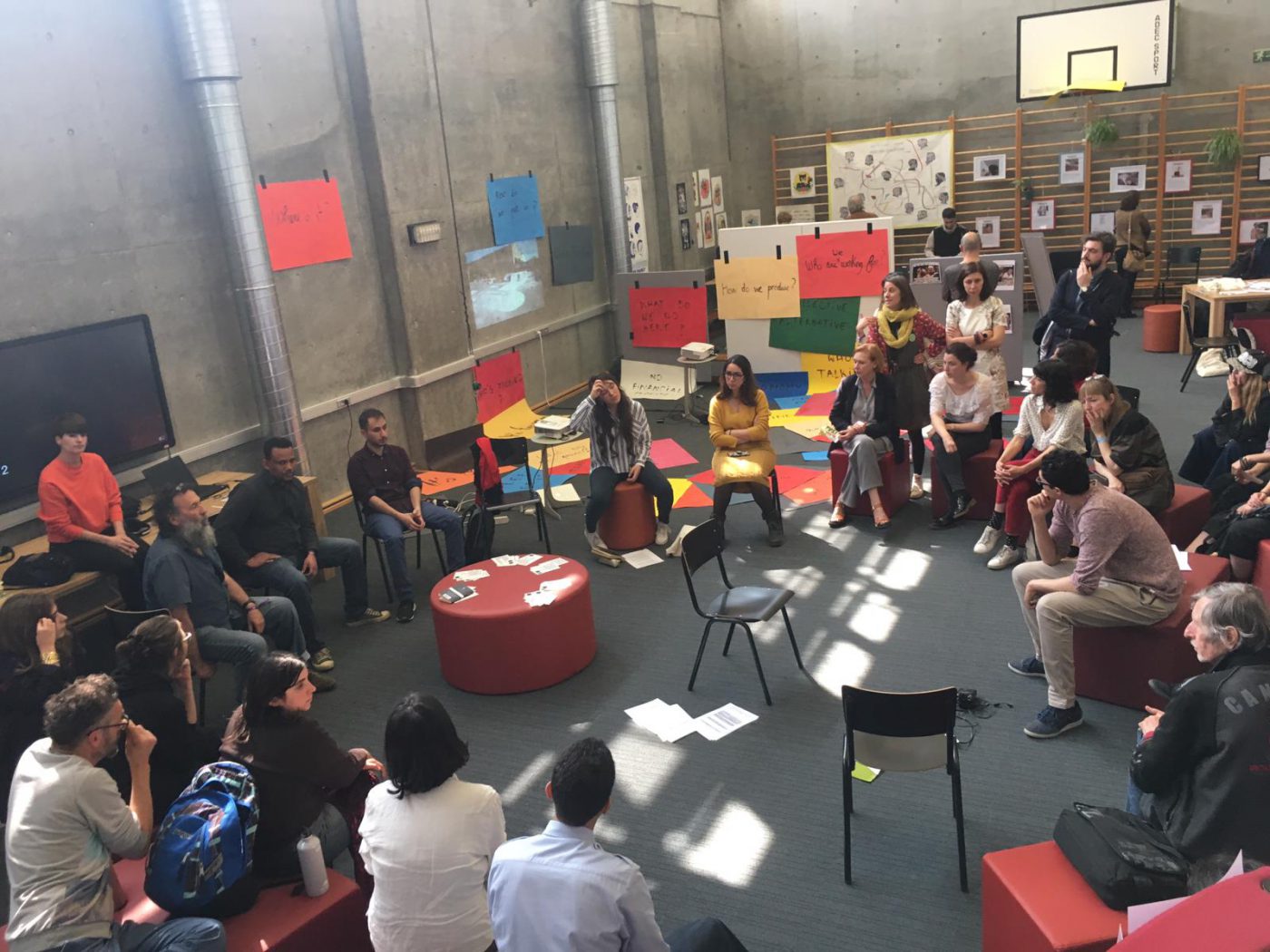
Transnational Alliance, We Cannot Work Like This, Contour Biennale 9, 2019, image © Lavinia Wouters
Just as importantly, several projects in Coltan as Cotton reflected on ongoing collective thinking beyond the biennial format. This objective was perhaps most vividly achieved in the Thomas More University (Mechelen), which hosted the assembly We Cannot Work like This. As a gathering by the Transnational Alliance, the project is a coalition, initiated by Contour 9, of several art schools from Belgium and abroad. The aim of the group is to establish fair working conditions and to forge alliances among disparate groups who undergo and oppose precarity through a reshuffling of institutional typologies. Attentive to problematics of gender, race and class, We Cannot Work like This felt very socially relevant as a bottom-up educational project.
Sure, one could object to the format of non-exhibition exhibitions, which is nothing new to the art world. The nature of the gatherings, however, was not of benign togetherness. Nor did the events feel like the typical echo chamber for critique that art contexts embrace. In the second phase of Coltan as Cotton points of friction emerged, rearticulating our gaze and circulation to the urban context but also creating uncomfortable moments. For example, there were publicly shared instances of aversive racism and sexism. It is precisely the power of assembling in public space, as complex and tense as that can be, that stayed with me after this second phase of Coltan as Cotton. And as Judith Butler has shown, a body doesn’t only act politically when it speaks but also when it operates collectively. Even if the art world does not need another biennial, it surely needs more moments of public assembly.
The third phase of Contour 9 will take place on 18.10.2019 until 20.10.2019.
Contour 9: Coltan as Cotton, Mechelen, 17.05.2019 until 19.05.2019
Kyveli Mavrokordopoulou
is doing a PhD at the École des Hautes Études en Sciences Sociales, Paris, on expanded notions of time in environmental art
